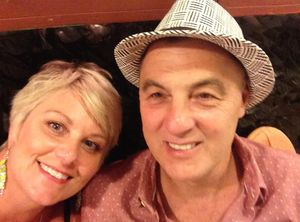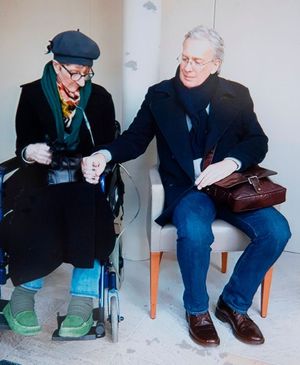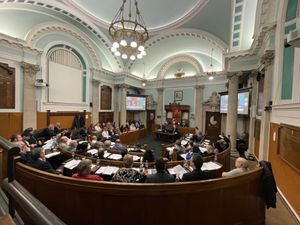'It is inhumane' - Fresh calls for change in law to allow assisted suicide
They both wanted their dying partners to pass away with dignity – but faced police investigation and obstacles from within the health service.

James Howley was quizzed by embarrassed officers on returning from Switzerland where his partner Helen Johnson died from assisted suicide.
Despite holding letters outlining Miss Johnson’s decision, the 57-year-old faced a six-month long investigation and was interviewed under caution.
He is campaigning alongside Julie Smith, whose husband Paul was unable to also travel to clinic Dignitas because his GP refused to hand over his medical record.
The 59-year-old engineer died in agony from cancer at Sandwell Hospital under the watch of his distraught wife, Mrs Smith, aged 48.
Backed by West Bromwich East MP Tom Watson, Mr Howley, aged 57, from West Bromwich, and Mrs Smith, from Wednesbury, want assisted suicide to become legal in the UK.

Mr Howley said: “I think it [the current law] is inhumane. I can’t live with the idea that someone has to die in pain when it is avoidable.”
The former lecturer at Sandwell College and the Heart of Worcestershire College had been with Miss Johnson since studying together at the City of Birmingham Polytechnic.
But in 2004 Miss Johnson was diagnosed with a rare genetic disorder which degraded her lungs. She was given around 10 years to live.
She coped thanks to operations until 2015 when she contracted pneumonia and in 2016 she contacted Dignitas about assisted suicide.
She was given a date in December, but with her health deteriorating rapidly she requested a date sooner and was accepted in September. It cost around £10,000.
Mr Howley said: “We took the train and booked a hotel an hour away. She was visited and checks were done on if she was okay and willing to go-ahead with it.
“We then got a lift to a clinic. Inside it was pleasant and the nurses were like angels. Because she could not drink they fitted her with a cannula.
“It happened so quickly. We said how much we loved each other. She was relieved and sad, she was concerned about me being on my own.”
He added: “She knew if she stayed in the UK she would have ended up suffocating to death – this was the way she wanted to pass away, in peace.”
But when Mr Howley returned home he found himself at the centre of an investigation by police, who were tipped off when called to a burglary at his home.
He said: “The officers were embarrassed to be there, but they had to follow the law.”

Six months later and the case was finally dropped. Mr Howley, who has suffered depression in recent years, said: “I’m quite a quiet person but I felt I have to tell my story to bring change.
“We were lucky we had the money. How many people are forced to die in agony because they cannot afford Dignitas?
“It has to change.”
The story is in contrast to Mrs Smith, whose husband was unable to fulfil his wish to die at Dignitas when finding out his cancer was terminal.
The pair met in West Bromwich and married at New Hall Hotel in Sutton Coldfield in 2011.
But in 2014, Mr Smith an engineer, was diagnosed with Stage 3 prostate cancer.
He underwent chemotherapy and clinical trials but a year later it became clear he could not beat the condition.

As part of his application to go to Dignitas he required medical notes from his GP. However, on asking, his doctor became suspicious and refused to provide the documents.
Mr Smith died in September 2016.
Mrs Smith said: “The last six months of his life were agony. He was bed-ridden. Dying a painful death was against his wishes.
“I just think he should have had the choice. It was a very difficult time and it was not how he would have wanted to go.”

Three years ago MPs voted against an assisted dying bill. Mr Watson abstained.
But today, after hearing the pair’s stories, Mr Watson has changed his opinion.
He said: “James and Julie came to see me my at my regular surgery at West Bromwich Town Hall.
“Listening to their experiences, that differed so much even though they live so close together, convinced me that it was time for me to speak out.
“I want to thank James and Julie for telling me their stories, I know it can’t have been easy.
“Between us I hope we can make a difference on this important issue,” he said.

Every eight days a dying person from Britain travels to Dignitas for assisted suicide.
Charity Dignity in Dying says the law in the UK needs to change to avoid the cost and journey.
On its website, it says: “We believe the right law for the UK is one that allows dying people, with six months or less to live the option to control their death.”




